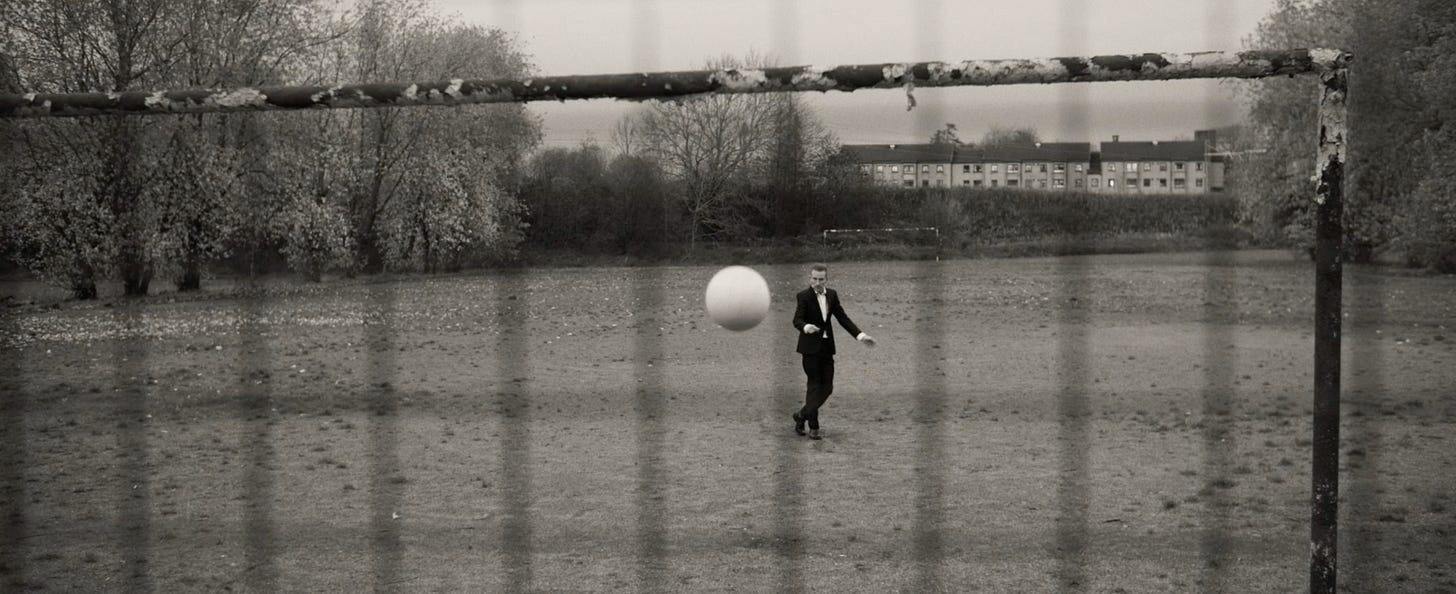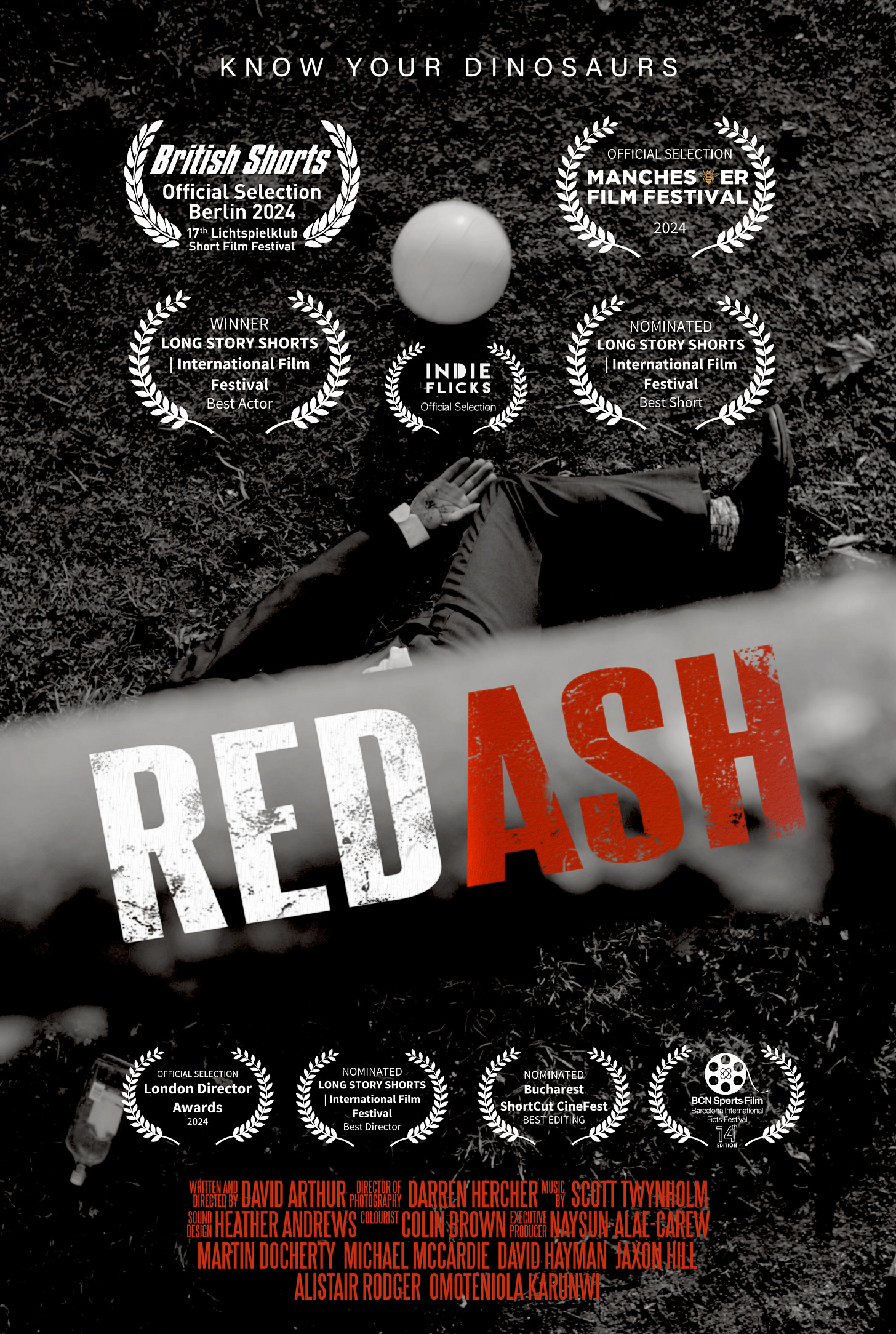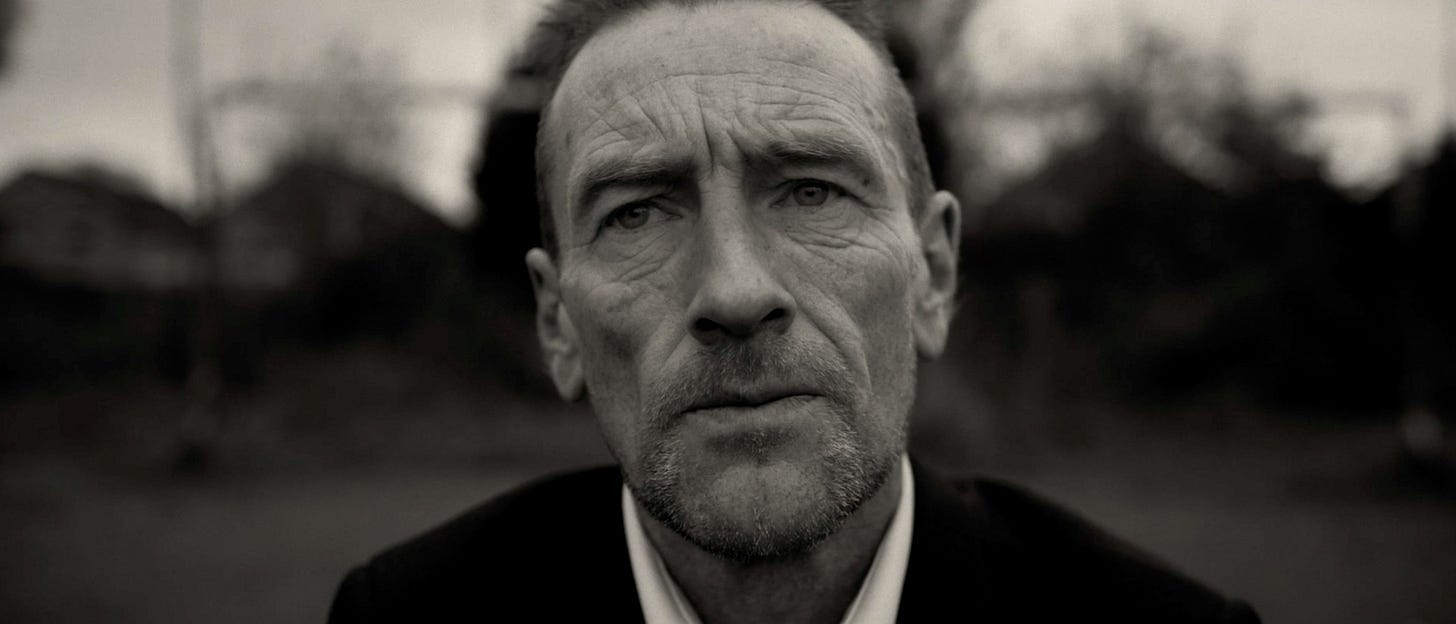From playing Tom Hanks' brother to immortalising Glasgow's blaes pitches
Nutmeg FC sat down with Red Ash actor Martin Docherty to discuss the making of the acclaimed short film about life, loss and (kind of) football
Yesterday, we premiered the wonderful short film Red Ash - a story of loss, set against the wasteland of one of Scotland's infamous red blaes football pitches.
If you haven’t watched it yet, then check it out below….
Today, Nutmeg FC’s Jack Harris chats to Martin Docherty, who plays the central character in Red Ash
This isn’t a story about football.
Thus opens a conversation, over coffee and cake, with Martin Docherty — award-winning actor, and central character in Red Ash. This statement does induce a certain level of anxiety in the interviewer over what should be an article… about football.
Yet, Marty is fundamentally right and, over the next hour, a fascinating analysis of Red Ash unfolds, a narrative of loss, memory, brotherhood and belonging blossoming alongside it. Writing this article, I’m presupposing that you’ve watched the film, premiered yesterday on Nutmeg FC. If I’m correct, you’ll know by now that, in 10 short minutes, it packs an emotional sucker-punch.
“Football’s a huge part of peoples’ lives,” Marty explains, “but if these brothers were fishermen, they’d be sat on a boat. It just happened to be football that brought them together.
“The film’s about loss, longing — a hankering for when things were better. It encapsulates the moment when life was at its best: when he [the protagonist] was playing football. He’s been to his brother’s funeral, but can’t handle it — so he goes back to that place where he and his brother felt safest and happiest.”
Marty’s a football man at heart. With pro trials at Norwich and Falkirk, alongside playing at a high amateur level in Glasgow, football was an important part of his youth. It was balanced with acting: a career path instigated by a production of Oliver!, when Marty was 10, and which culminated in a role in the Hollywood movie Cloud Atlas, playing Tom Hanks’ character’s brother.
“My sister was in an amateur group in Eastwood, quite a posh area of Glasgow, and they were doing Oliver!”, he said. “They said to her, ‘Look, we’ve got this beautiful blue-eyed, blond-haired boy to play Oliver Twist. We’ve got all these handsome kids for the chorus. But it’s Giffnock — we can’t find an Artful Dodger. Do you know anybody?’ And she said: ‘I might know the very one!’”
There’s a glint of the Dodger in Marty’s eyes as he regales with tales of his on-pitch life: the tackles on opposing playmakers, the rough-and-tumble amateur leagues, and the red-ash, ‘blaes’ pitches of Glasgow that left their formative scrapes and scars.
“I stopped playing at about 35, 36. I started getting work on the TV. One of the other players said, ‘Do him, for being on the TV!’ and at that point, I needed to quit. There aren’t many parts for a guy with one leg!”
Red Ash, then, feels like two worlds colliding. It isn’t a story about football, but a story told through football. Loss is, quite literally, played out on the pitch: a pickup game, never accepted; a headed pass, never returned; a shot on target, never saved. Essential human themes echo through each keepy-up; raw, heart-wrenching suffering, soaking the turf with each gulp of Mad Dog. All the while, the ball remains: a visualisation of absence, of the past.

We’re also greeted with that nagging reminder that life goes on, has no patience for grief and no empathy for sorrow. The trains clatter past with unforgiving regularity. Strangers walk by, uninterested in the game unfolding in our protagonist’s head. In such a short timeframe, every detail is vital — a fact that Marty, who has worked with leading actors and directors throughout his career — greatly appreciated during the filming process.
“We really collaborated over those two days of filming,” Marty told me. “It constantly evolved. The director, Dave (Arthur), would ask what I thought, what I wanted to try. He’s an editor, with a great eye — Darren (Hercher) is a brilliant cameraman, with a different eye. Between the three of us, we created through collaboration.
“It was much more encapsulating than working with a script — you’re so much more involved with the final product and, as an actor, that’s what you look for. I’ve worked on big things before, but this was special: I could create this guy myself. It was an open book.”
Given the plethora of characters that Marty has brought to life over the years, I’m intrigued as to how he went about creating this one. “I lost my sister about 11 years ago,” Marty revealed, “which was really difficult to deal with. I lost my dog of 13 years, and I was distraught. These things form you as a person, as an actor.
“He needed to be vulnerable, not showing much control and making people think about what affects him as the film goes on. The football came naturally — once I started kicking a ball around, I felt 25 again! Once, I went to kick it, kicked the ground fast, and tore a muscle in my back. That moment was authentic — it wasn’t acted!”
Red Ash has enjoyed great success at film festivals across Europe, shown at Berlin, Bucharest, Barcelona and London, as well as in Scotland. In 2023, Marty won Best Actor in a Short Film at the Long Story Shorts International Film Festival, while David Arthur was nominated for Best Director and Best Editor.

Despite the excitement and rewards of critical acclaim, though, success for Marty means creating something that resonates with people. When I ask him about the film’s messaging, and what he wants audiences to take from it, the universality of Red Ash shines through. These are themes that we all understand — in some cases, intimately – illustrated through the accessibility of football. There’s no ‘lesson’ to take from the film: responses are hyper-individualised.
“What surprised us was how different people’s responses were,” Marty said. “We didn’t think, ‘We’ll tell people this’ or ‘It’ll be about that’ — it’s about what comes up, and how the audience reacts. Take from it what it does for you, and how it affects you.
“There was a community centre in a rough part of Edinburgh, with a community of people with learning difficulties, addiction problems — and they meet up to watch films. When they showed this one, they wanted to watch it again, with the people who made it, and that was a beautiful experience. It wasn’t about money, about where the film would go next. It was people, impacted by our film, who wanted to talk to us. As an actor, that’s what it’s all about.”
If football is your entrance point into the film, thinks Marty, then that’s excellent. The game is society’s great leveller — and a powerful tool for bringing new audiences into theatres and cinemas. Beyond the ball, though, there’s a rich narrative to be explored and, with self-reflection and empathy, a great deal to be discovered.





